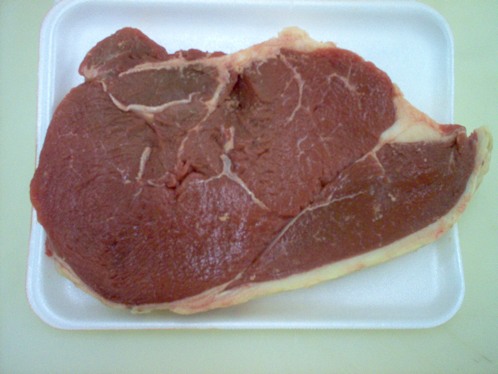
The stream of bad news on obesity continues unabated: independent studies have confirmed the common sense conclusion that obesity and the overconsumption of processed meats (particularly red meat) lead to significantly shorter life expectancies and a greater likelihood of premature death by heart disease or cancer. These two factors are often, unsurprisingly, related. Red meats, most of which contain patently unhealthy amounts of saturated fat in addition to various preservative and appearance-enhancing chemicals, should be consumed only in careful moderation.
In the most recent related study, researchers at the National Cancer Institute used data culled from the National Institutes of Health/AARP long-term Diet and Health Study, a project begun in 1995 to track the health outcomes of more than 500,000 Americans aged 50-70 at the study’s start. Over a 10-year period, nearly 48,000 men and 24,000 women died. The more red meat subjects reported eating, the more likely they were to fall into that unfortunate total.
Researchers, noting that the consumption of red meat has been linked to higher cholesterol and blood pressure levels, stated that 11% of the male fatalities and 16% of the female fatalities could have been prevented had subjects restricted their meat consumption levels to match those of the lowest fifth of the population: 9.8 g per 1000 calories. On the other hand, subjects who ate more white meat (chicken, turkey, veal) had more positive outcomes. Comparing subjects who ate the largest amounts of these meats to those who ate the smallest revealed that the greatest consumers also faced the lowest risk of death during the 10-year period in question.
Perhaps the most interesting statistic to draw from this study is the fact that 20% of its subjects ate 62.5 g of red meat for every 1000 daily calories consumed (this amounts to a little more than a quarter-pounder a day assuming subjects stuck to the dietary standard of 2000 daily calories). A diet like that paves the way for cancer and heart disease. Even if every ounce of meat one eats is pure-bred free-range organic, eating so much red meat is clearly counter-intuitive as the human body cannot efficiently process such large amounts over such a short period.
The most obvious examples of “processed meat” include products such as hot dogs and ham chunks, but the phrase could be applied to a great deal of the animal products we eat, particularly those coming from cows. Health risks stem not only from the inordinately high amount of saturated fat present in red meat but in the various salts and nitrate-based preservatives used to prepare most of these products for consumption. Pre-packaged bacon, ham, sausage, ground beef etc. usually falls under this heading.
A separate study confirms that even mild obesity creates multiple health risks; a body mass that measures a mere 33% above one’s ideal will reduce life expectancy by 3 years on average. The life expectancies of the considerably obese compare to those of long-time smokers. The previous study indicates that those concerned about their weight or their general health should refrain from eating so much red meat. That is, of course, only the first step in a process that will last the rest of a lifetime.